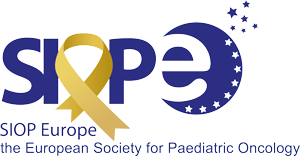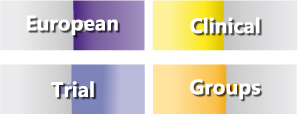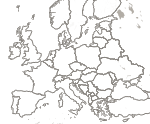“I love hearing my daughter’s name: Chloe. She was 15 when she was diagnosed with Ewing’s Sarcoma (a type of primary bone cancer) and 18 when she died from it. A child’s death is the ultimate life sentence for the family left behind.
Chloe died six years ago, yet still I burn with a fierce determination to do something that means another family will not have to go through what we have.
Survival from the kind of cancer that Chloe had has hardly shifted in several decades. This means that a child walking into a clinic today, with the same illness, would probably have no more chance of survival. This must change.
Key to my family’s story was that Chloe was denied access to a new drug, simply because she was three months too young to meet the clinical trial’s lower age threshold of 18. There was no clinical reason for this age limit, it was purely and administrative impediment that has somehow embedded itself into the industry’s culture. Please see our video to find out more here.
The multi-stakeholder group at the FAIR Trials Initiative is united in its mission to get rid of this lower age range. It is a major barrier to accelerating children and young people’s access to newer and kinder drugs for cancer.
My personal story is a major driver in my work with FAIR. I am so encouraged by all of my colleagues from clinicians, academics, fellow parents and patients and representatives from industry. We have joined forces to make change happen and we are starting to have a real impact. We are so much stronger together.
We have a powerful and far reaching programme of stakeholder engagement. Us parents and patients play a critical role in communicating the key FAIR messages, alongside our personal stories, into the wider clinical trial arena. As a parent it is extremely difficult to share these stories, but so important. Only parents and patients can really demonstrate the human impact of these unnecessary barriers. It’s a powerful voice for change.
So far this year I’ve had the honour of sharing our work, at three conferences in the UK and one in Amsterdam. More talks planned for the Autumn and of course we make full use of social media and other methods of communication Here are my personal highlights:
National Institute for Health Research (NIHR) TYA Summit in London
The Summit opened with an excellent presentation on our work by my fellow parent Chris Copland and Dr Lynley Marshall from the Royal Marsden NHS Foundation Trust.
It was clear to see our mission on age criteria fits well with the Summit’s vision of “all Centres or designated units treating TYA patients should aim to recruit at least 50% of those patients to clinical trials by 2025.”
I was delighted to see patients and parents firmly in the driving seat in developing the NIHR strategy to improve research opportunities for teenagers and young adults.
For more on this work click here.
Cancer Research UK Clinical Trials Unit (CRCTU) Awayday in Birmingham
It is always a pleasure to work with Professor Pamela Kearns, a determined and powerful advocate for better treatments for children and young people with cancer.
I presented our work to a packed audience at the Studios in Birmingham. I was especially pleased to share a stage with Jess Mills, who spoke about the Brain Cancer Mission and Brain Cancer Research. Jess is the daughter of Dame Tessa Jowell, a British politician and former Labour cabinet minister, who died of a brain tumour last year.
www.thebraintumourcharity.org
National Cancer Research Institute (NCRI) and Cellular Molecular Pathology Initiative (CMPath) “Do we need another biobank?
Whilst the focus of the conference was on biobanks, the audience was very interested in my presentation on the FAIR trails work. There were lots of comments and requests for further information.
Cancer Drug Development Forum (CDDF) Multi-stakeholder Workshop “Involving Patients in Oncology Drug Development” in Amsterdam
I especially enjoyed this workshop as it brought in patients from adult oncology too. Really interesting to hear how older patients (those over 65) are also, often unnecessarily, blocked from entering trials on the basis of their age. There was a lot of talk around how we can make accessing clinical trials more patient-friendly and how we can all work more closely together for the benefit of all. Two great facilitated workshops should, I hope, lead to a strategy where we can work in tandem with adult patients and ensure we are sharing best practice in how best patients and parents can influence, and at times lead, the agenda.





 on Twitter
on Twitter on Facebook
on Facebook on LinkedIn
on LinkedIn on YouTube
on YouTube